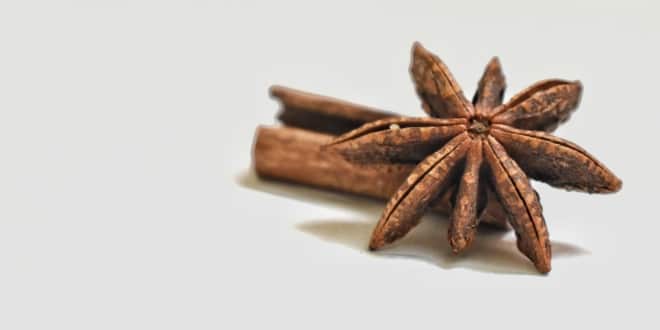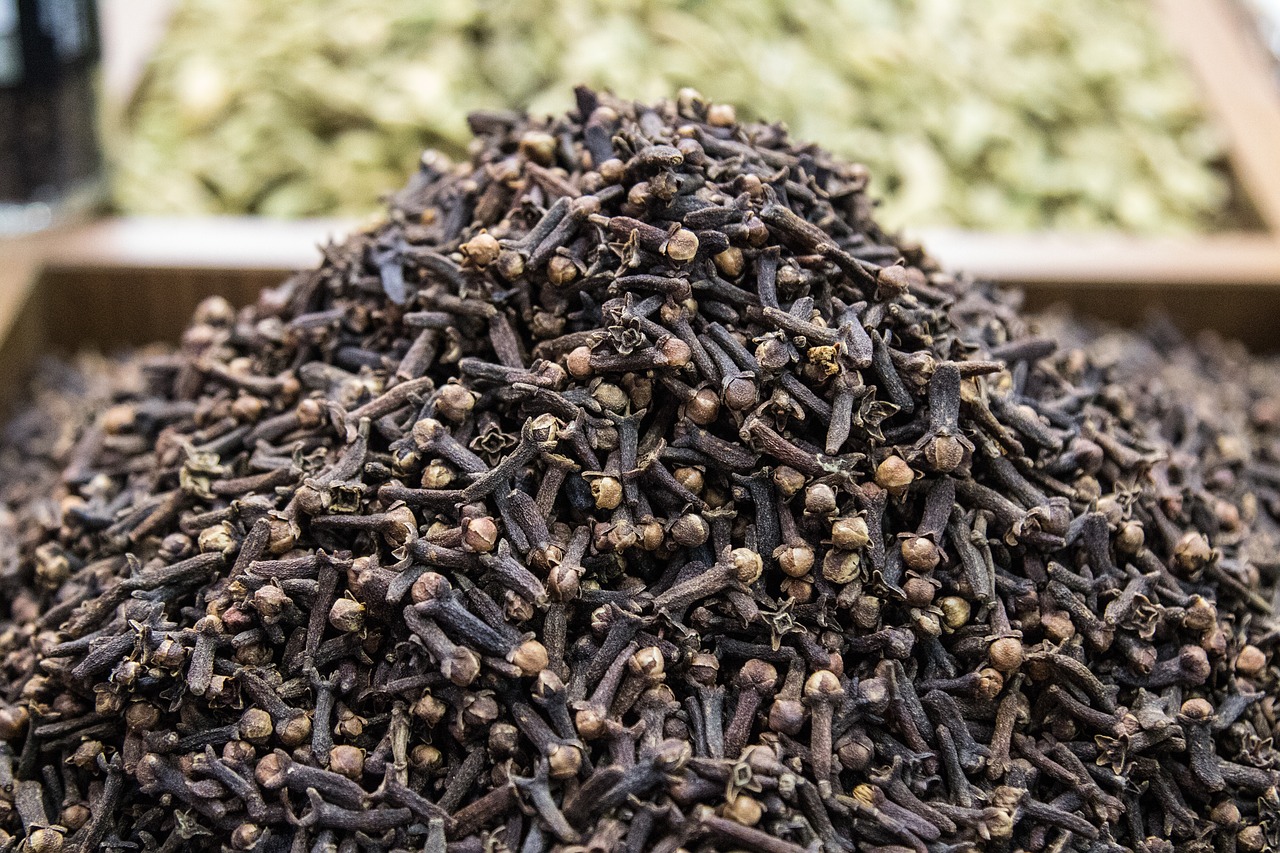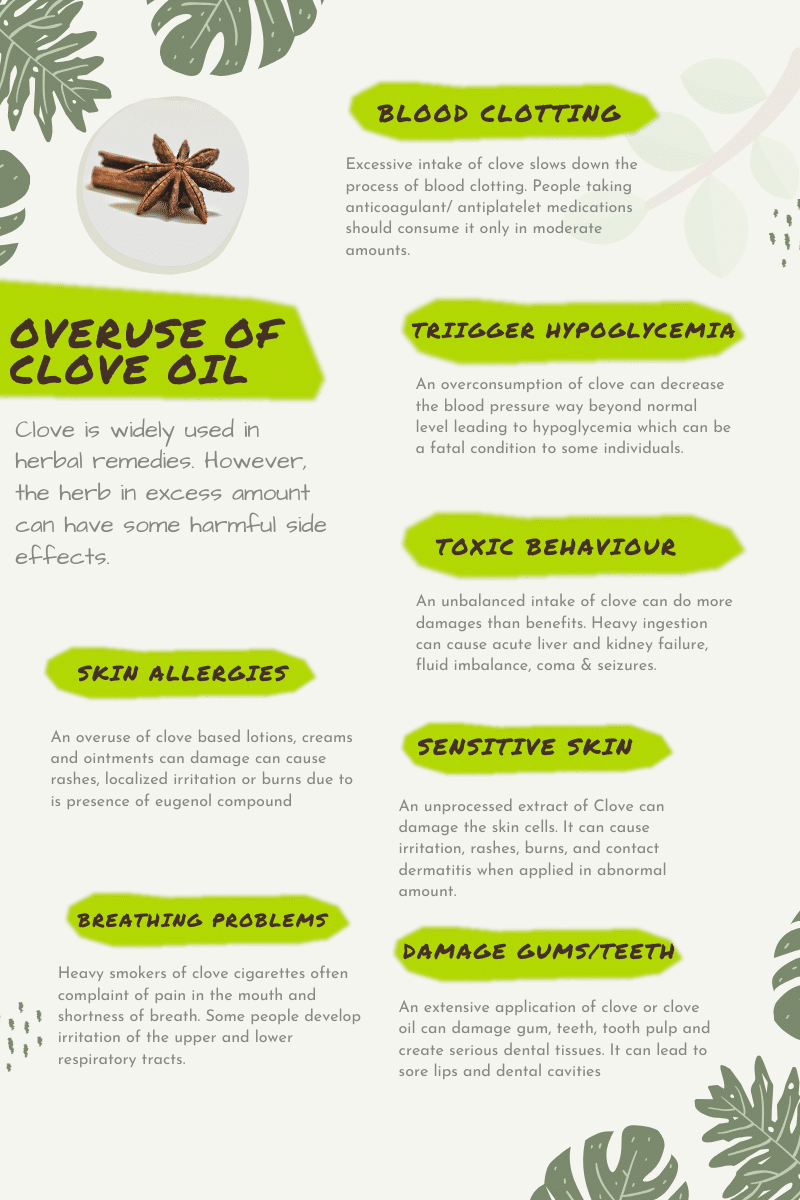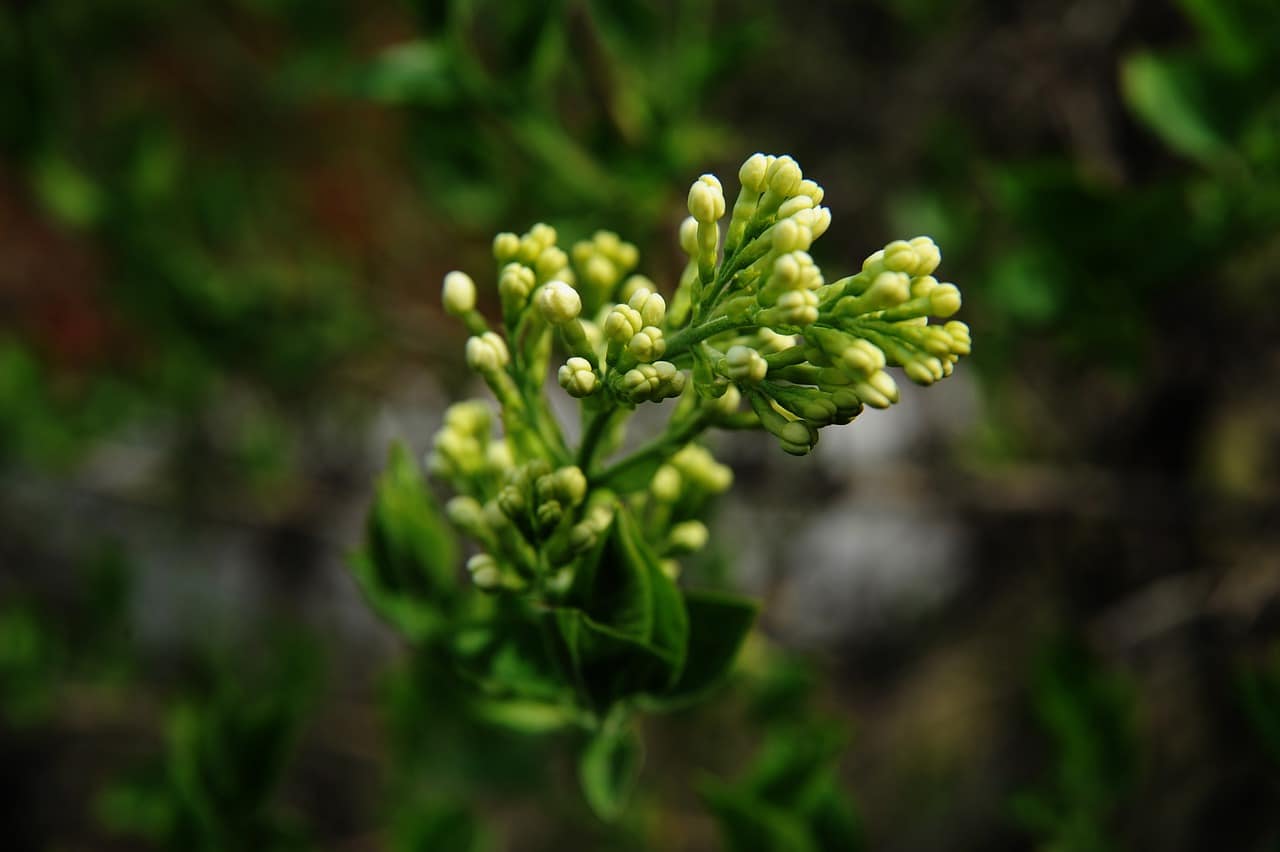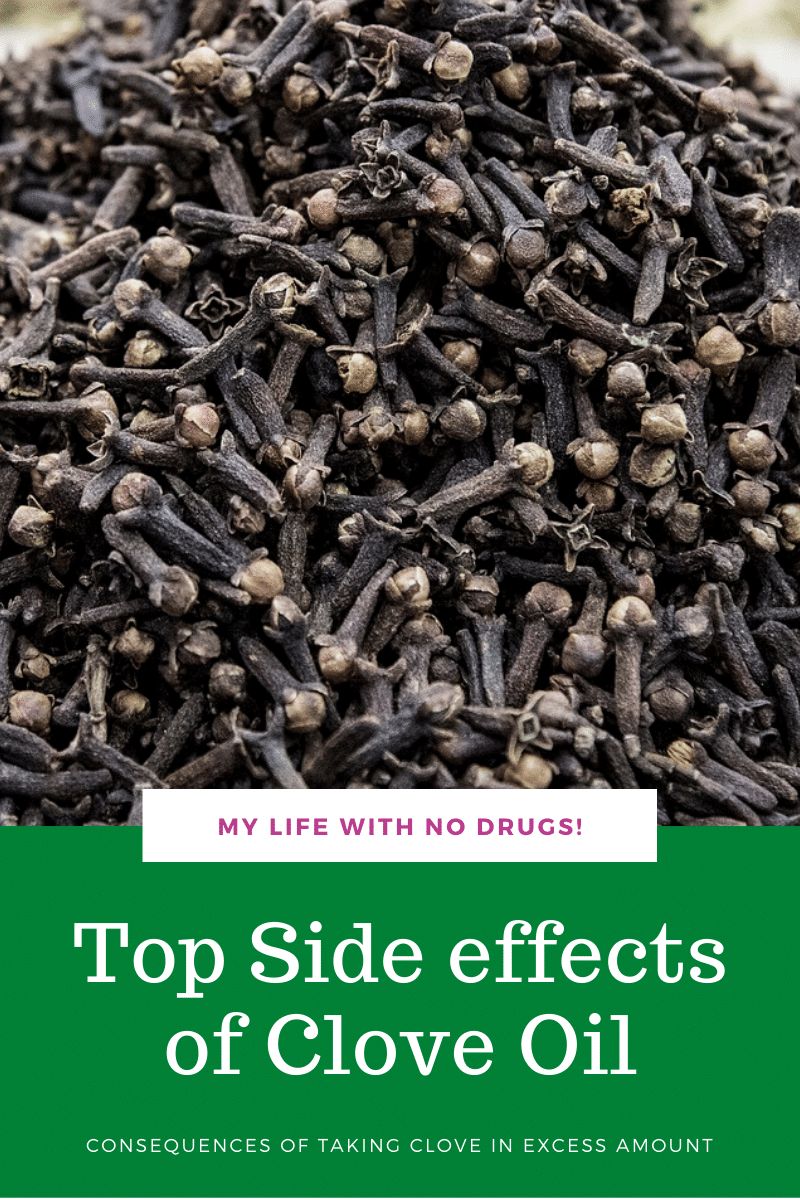The importance of clove oil can be understood from the fact that during the 16th and 17th centuries, the clove was considered among the most valuable items of Europe.
Clove is a powerful natural herb and widely used in allopathic as well as herbal medicines. It is an accepted antiseptic, analgesic anticoagulant, and anti-inflammatory herb. The scientific name of the clove plant is Eugenia caryophyllata, and it grows in warm climate zones across the world.
Due to its pleasing, sweet sweet-smelling fragrance, the plant’s bud is actively used as a spice in several Asian and Chinese dishes. Most of the people are well aware of clove’s benefits, especially as essential oils. It is used as herbal painkiller and antibiotic in the dental cure.
However, people always underestimate the safety concerns while using a clove in natural remedies. Clove, not taken in moderate amounts, can unleash some harmful side effects.
Let us find out the situations where clove overuse can be not so advantageous.
Where does clove come from?
Clove is the dried flowers of the plant. A careful observation of the bud shows the outermost twist of the flower part, four sepals, and petals and a dome.
The flower buds are initially pale in color progressively turning green and lastly, matures into bright-red clove buds. When buds become 2 cm in size, they are plucked, sundried, graded, and finally get ready for distribution.
Chemical Nature of Clove
Clove flower buds constitute nearly 20% of essential oil and primarily responsible for its typical aroma and taste. The plant’s bud also comprises the tannin compound, Sterol glucosides, gum and, resins. Eugenol is the main constituent of concentrated clove oil, which forms 60% of the total residue. Again, eugenol contains acetyleugenol (10%) and traces of gallic acid, flavonoids, oleanolic acid and, sesquiterpenes. Clove contains 2-methoxyphenyl, a naturally occurring organic compound, which can reduce uric acid-fast and an effective remedy for rheumatoid arthritis.
Find Out Now, The 7 Top Side effects of Clove Oil!
1# Clove Oil Trigger Skin Allergies
A suspension containing 15% solution of cloves helps in the treatment of ringworm and fungal skin infections. Although the presence of eugenol acetate in clove oil makes it an effective anti-allergic and muscle relaxer, the excessive use of clove oil can cause allergic reactions on the skin. The unrefined extract of the herb can change the behavior of the skin by making it ultra-sensitive.
An overuse of clove based lotions, creams, and ointments can damage the skin cells. The skin allergy can be like rashes, localized irritation, or burns. The most common reason cited for skin allergies triggered by clove ointments rampant use is the presence of eugenol compound, which interferes with body proteins.
2# Clove Oil Cause Respiratory Problems
Cloves can make some individuals prone to respiratory allergies. The common symptoms include rashes, hives, swelling, chocking of the throat.
People who work in clove processing units are at a higher risk. The inhaled eugenol from the dust of cloves irritates the oral cavity and impairs lung functioning.
Smoking clove cigarettes frequently affects the airways of the lungs. Smokers have also complained about the pain in the mouth and shortness of breath. Long-term use of clove can cause severe irritation of the upper and lower respiratory tracts.
3# Encourage fast Bleeding
The blood clotting process in the body enables the blood to plug and heal a wound. Excessive use of clove interferes with this vital process by slowing it down. In other words, clove overuse increases the risk of bruising and bleeding.
People with impending surgery or post-surgery are advised not to use clove oil because it makes the blood thinner and delays the healing of the wound.
Cloves also interfere with anticoagulant, and antiplatelet medicines called blood thinners. These include – Warfarin, aspirin, clopidogrel, ibuprofen, diclofenac, heparin, dipyridamole, heparin, ticlopidine, and others.
4# Initiate Blood Pressure to fall below normal
Cloves are found to regulate blood pressure because it acts as a natural blood thinner. However, in situations of its excess intake, the side effects can be quite devastating. The herb can lower the blood pressure way beyond the average level leading to hypoglycemia.
This is a condition where the amount of glucose in our bloodstream decreases significantly and extremely harmful for low sugar patients. Not to forget, if you are on diabetes medication, increased consumption of cloves can aggravate the condition.
5# Becomes Poisonous in excess amount
As a potion, the clove clears out cough and tightness and helpful in improving digestion. Cloves have an encouraging effect in curing stomach ulcers. As a vermicide, an intake of clove in a moderate amount kills harmful worms and intestinal parasites without causing significant damage to the body.
On the contrary, an unbalanced intake of cloves can do more harm than advantages.
There have been some incidences, which shows that clove oil can be toxic. Conditions like acute liver damage and kidney failure, fluid imbalance, coma, and seizures are reported in cases of consumption of clove beyond an acceptable amount.
Studies do not confirm the side effects of clove in pregnancy. However, it is assumed that the herb in a safe amount is possibly not harmful to breastfeeding and pregnant woman.
6# Clove Oil Makes the Skin Sensitive
The beauty products use clove as an anti-aging ingredient. It ensures a youthful and glowing skin by removing dead skin cells and encouraging blood flow. Still, some people can experience skin irritation, redness, and itching by using clove based ointments.
Cloves can make your skin super sensitive. Don’t use the topical application of undiluted clove oil. This is an unrefined or unprocessed extract of the spice. It can damage the skin cells and cause rashes, irritation, contact dermatitis, or burns.
7# Causes Dental Damage
Traditional medicinal systems of India and China have been using clove oil to lessen the tooth pain. The essential oil is mixed with other compounds and used as a temporary filling material in dental restoration. It is also used in root canal treatment and gum diseases. The clove oil prevents the growth of gram-positive and gram-negative bacteria, and for this reason, it is used as a medication to treat inflammations.
Nevertheless, frequent use of clove oil in excess amounts can damage the dental nerves. Overuse of clove or excessive application of clove oil can cause extensive damage to your gum, teeth, tooth pulp, dental tissues, etc. It can also lead to sore lips and dental cavities over time.
Himanshu Jha – is the founder-editor of www.lifebing.com and firmly believes that firmly “Health is the only wealth; others are just material.” He loves to blog about health, wellness, and fitness issues.

